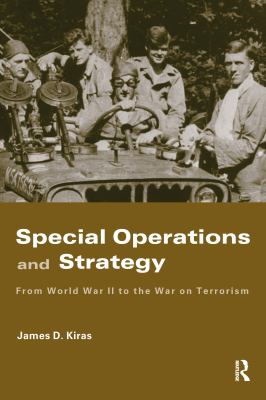
e-Book
|
Special operations and strategy : from World War II to the War on Terrorism
Copies
0 Total copies, 0 Copies are in,
0 Copies are out.
Title
Special operations and strategy : from World War II to the War on Terrorism
Call No
e-Book
Digital Link
Subjects
Language
English
Published
London : Routledge, [2006].
Publication Desc
1 online resource (xvii, 230 pages : ilustrations, maps).
ISBN
9780203969649
(electronic bk.)
Series









